The village of Galai that President Xi Jinping visited on July 21 is known as "Peach Blossom" Village, with Tibetan-style buildings spread out in front of rolling hills.
Located next to the 318 National Highway in Nyingchi, Southwest China's Tibet Autonomous Region, the village has developed its transportation industry and its Peach Blossom Festival to boost income.
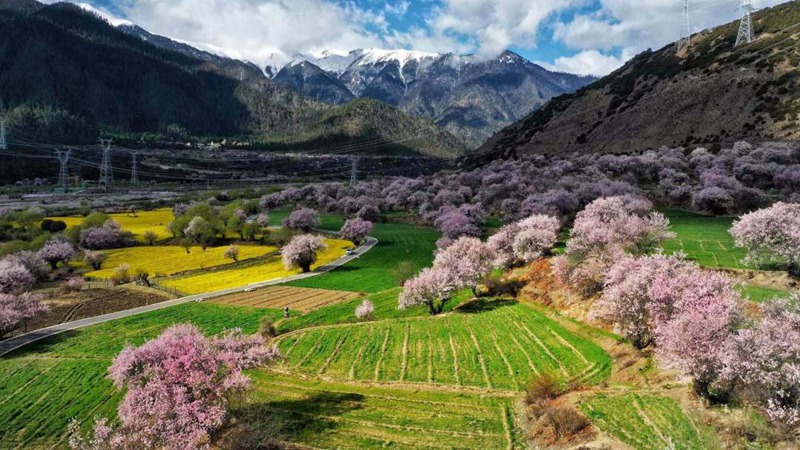
The peach blossom in Galai village in March 2021. (Photo: People.cn)
Xi visited the house of Dawa Gyaltsen in the afternoon.
The house was spacious and light, with a yard full of beautiful flowers. Rooms were equipped with delicately carved wooden furniture and decorated with Tibetan-style paintings. The bathroom was equipped with a flush toilet.
Dawa Gyaltsen's mother, Drolma, 60, said she had once lived in a small stone dwelling. At that time, the family kept livestock in their yard, and sanitation was poor.
"It was beyond my imagination that we could live in such a bright house and that we could plant different things in the yard," she said, adding that she felt very happy to have such a wonderful life.
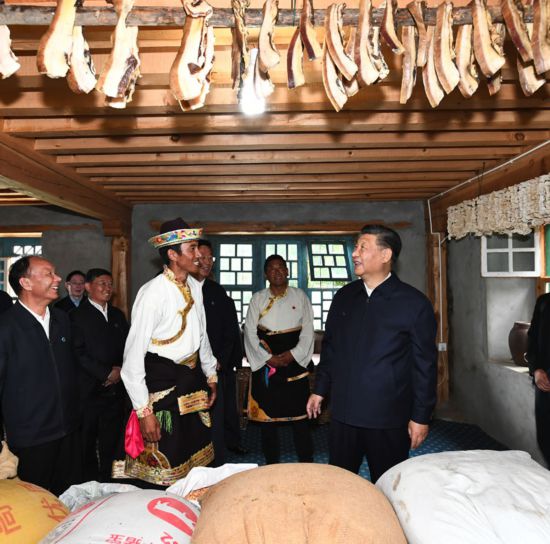
On July 21, Xi takes a close look at the storage room of Dawa Gyaltsen's family. (Photo: Xinhua)
Xi walked into the storage room and took a close look at the bags of wheat, buckwheat, highland barley, rapeseed, peas, and corn. He delightedly took a handful of grain and looked it over in the sunshine. Xi noticed that on the beams of the house hung a row of Tibetan bacon and a row of milk curd, and against the wall stood home-brewed liquor. Looking into the kitchen, Xi found there were piles of beef and mutton, and an abundant stock of yak butter which he estimated could "weigh over 50 kilograms."
Xi chatted with Dawa Gyaltsen's family. Dawa Gyaltsen told Xi that his family income exceeded 300,000 yuan ($46,110) last year, and that his businesses now included transportation, tourism, land rent, planting and livestock breeding.
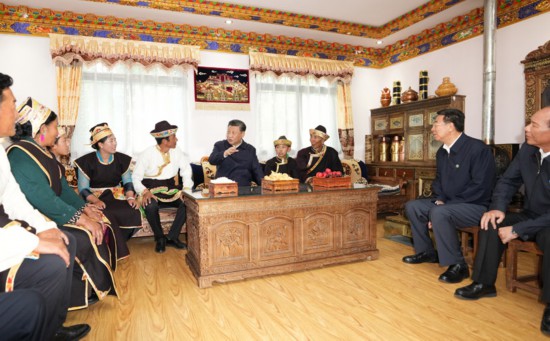
On July 21, Xi chats with Dawa Gyaltsen's family. (Photo: Xinhua)
Village Party chief Penpa added that in the past, wild peach trees were cut as firewood to burn, but now he deeply felt that "lucid waters and lush mountains are invaluable assets."
Every year in March and April, when peach trees blossom, visitors from all over the world swarm to the village. In the first half of this year, the village received 140,000 visitors.
"The precious natural heritage was left by your ancestors. It is really a place with picturesque scenery," Xi said with a smile, "You live a happy life now."
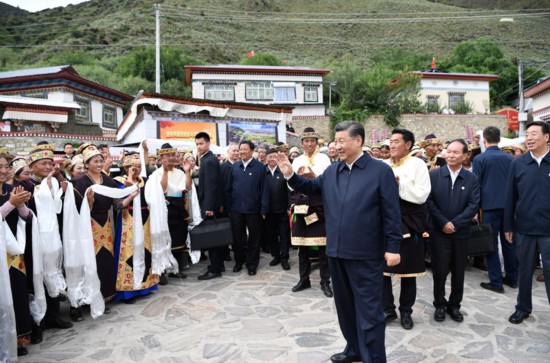
On July 21, Xi waves hands to greet locals in Galai village. (Photo: Xinhua)
Dawa Gyaltsen has a daughter and a son. Xi amiably listened to them sharing their dreams. The daughter wants to be a doctor when she grows up, and the son dreams of being a sprinter.
In old Tibet, people rarely talked about education. At that time, having a "roofed dwelling" was a dream that countless serfs did not even dare think about. Some of them even lived in cattle and sheep pens, using straw bales as blankets.
With the highest poverty rate, deepest poverty level, most challenges for poverty work and highest costs of poverty relief, Tibet had been regarded as China's major battlefield against poverty.
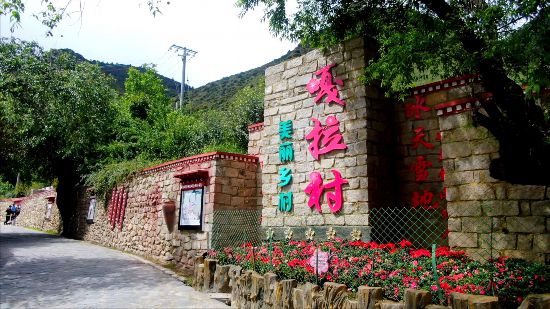
The village of Galai in Nyingchi, Southwest China's Tibet Autonomous Region. (Photo: Xinhua)
Over four years, Tibet has lifted about 628,000 people out of poverty, and delisted 74 county-level areas from the national poverty list by the end of 2019.
At the seventh Central Symposium on Tibet Work in August 2020, Xi talked about the changes in Tibet. He said, "Farmers and herdsmen have witnessed dramatic changes in their livelihoods from buckets to water pipes, from oil lamps to electric lights, and from unpaved roads to asphalt roads."
(Translated by Li Ying and Luo Tianya; Edited by Lu Dong)


